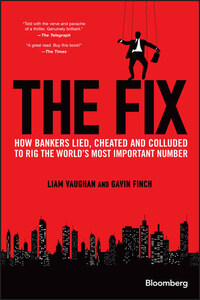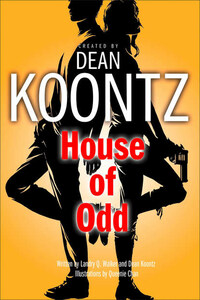Since 1996, Bloomberg Press has published books for financial professionals, as well as books of general interest in investing, economics, current affairs, and policy affecting investors and business people. Titles are written by well-known practitioners, Bloomberg News® reporters and columnists, and other leading authorities and journalists. Bloomberg Press books have been translated into more than 20 languages.
For a list of available titles, please visit our website at www.wiley.com/go/bloombergpress.
This edition first published 2017
© 2017 Liam Vaughan and Gavin Finch
Registered office
John Wiley & Sons Ltd, The Atrium, Southern Gate, Chichester, West Sussex, PO19 8SQ, United Kingdom
For details of our global editorial offices, for customer services and for information about how to apply for permission to reuse the copyright material in this book please visit our website at www.wiley.com.
All rights reserved. No part of this publication may be reproduced, stored in a retrieval system, or transmitted, in any form or by any means, electronic, mechanical, photocopying, recording or otherwise, except as permitted by the UK Copyright, Designs and Patents Act 1988, without the prior permission of the publisher.
Wiley publishes in a variety of print and electronic formats and by print-on-demand. Some material included with standard print versions of this book may not be included in e-books or in print-on- demand. If this book refers to media such as a CD or DVD that is not included in the version you purchased, you may download this material at http://booksupport.wiley.com. For more information about Wiley products, visit www.wiley.com.
Designations used by companies to distinguish their products are often claimed as trademarks. All brand names and product names used in this book are trade names, service marks, trademarks or registered trademarks of their respective owners. The publisher is not associated with any product or vendor mentioned in this book.
Limit of Liability/Disclaimer of Warranty: While the publisher and author have used their best efforts in preparing this book, they make no representations or warranties with respect to the accuracy or completeness of the contents of this book and specifically disclaim any implied warranties of merchantability or fitness for a particular purpose. It is sold on the understanding that the publisher is not engaged in rendering professional services and neither the publisher nor the author shall be liable for damages arising herefrom. If professional advice or other expert assistance is required, the services of a competent professional should be sought.
A catalogue record for this book is available from the Library of Congress.
A catalogue record for this book is available from the British Library.
ISBN 978-1-118-99572-3 (hardback) ISBN 978-1-118-99573-0 (ePub)
ISBN 978-1-118-99574-7 (ePDF) ISBN 978-1-118-99575-4 (O-book)
Cover design: Wiley
Cover image: City image © Petr Student/Shutterstock; Puppet image © Rudek/Shutterstock
There were four of us at a table by the bar, eyeing each other with suspicion: two reporters, a highly paid derivatives trader in his early thirties, and a lawyer who had cautiously brokered the meeting. We'd just written a story about how the trader and a handful of his colleagues had been sacked, and he was incensed. His reputation was ruined, and he was aggravated by what he saw as the fundamental ignorance of the press. Did we even understand what Libor was? Did we understand what Libor had become?
On that chilly afternoon in February 2012, at a near-empty hotel bar in central London, the word “Libor” had not yet entered the public vernacular. In the world of finance, it was common. Libor was the name of a benchmark interest rate, one that was both mundane – it was just a measure of how much it cost banks to borrow from each other – and extraordinary. Libor was in everything, from mortgages in Alabama to business loans in Liverpool to the hundreds of billions of dollars in bailout money given to banks during the financial crisis. It was sometimes called the “world's most important number”, and the trader sitting across from us was accused of trying to manipulate it.1 From his body language it was clear he didn't want to be here, but he was desperate. So were we. We didn't even know his name.2
“Why do you need to know that?” he snapped when we asked. He had heavy bags under his dark, narrow eyes. All we needed to appreciate, the trader insisted, was that Libor wasn't what we thought it was. “There are no rules,” he said, avoiding eye contact. “There never have been. This is all a fucking joke.” When we pressed him for specifics, he clammed up. After the second round of drinks arrived, we tried a different approach. What was it we didn't understand?
The trader shook his head impatiently. Discussing Libor with colleagues and counterparts was as much a part of life on the trading floor as debauched nights out and crude language, he said. It had been going on forever and was widely condoned by management. But it had gotten more complicated than that, he continued. Libor had broken down. It was supposed to be a measure of how much lenders paid each other to borrow cash, but since the crisis, banks no longer lent to each other at all. Libor had become a fictional construct, dreamed up each day in the minds of a group of bankers with a vested interest in where it was set. The world's most important number was a fraud.








